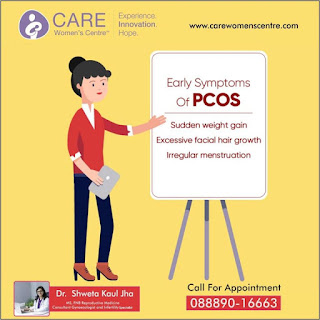How is infertility linked to depression?
While doctors have long understood that infertility is a medical problem, shame and secrecy remain prevalent among people with infertility. This can make it difficult to seek help from friends and family.
While doctors have long understood that infertility is a medical problem, shame and secrecy remain prevalent among people with infertility. This can make it difficult to seek help from friends and family.
Not getting pregnant after trying for a prolonged period can be profoundly disappointing and frustrating, especially without support from loved ones.
Research from 2010 found that depression may prevent people from seeking treatment for infertility.
Though many people with fertility issues can have a child after treatment, such as in vitro fertilization (IVF), anxiety about whether the treatment will work can also undermine a person’s mental health.
Some of the reasons people with infertility struggle with depression include:
Stress. Infertility can be a stressful experience, particularly where there is a lot of pressure on someone to get pregnant.
Medical conditions. Several medical issues that can cause infertility, such as polycystic ovary syndrome (PCOS), may also increase the risk of depression. A 2010 study found higher rates of depression and anxiety in women with PCOS.
The emotional and physical challenges of treatment. A small 2014 trial of women seeking infertility treatment or fertility-preserving services found that their anxiety and depression worsened as treatment progressed.
Treatment side effects. Many fertility medications involve the use of hormones. Sometimes, these hormones can affect a person’s mood, increasing the risk of depression.
Anyone can experience depression because of infertility.
Symptoms
It is not unusual to feel sad or even depressed occasionally. However, when these feelings persist over time and affect a person’s quality of life, they may be experiencing depression.
A person may receive a diagnosis for depression when they have five or more of the following symptoms:
- depressed mood for most of the day on most days
- loss of interest in most activities, even those a person once enjoyed
- weight loss or gain not due to deliberate dieting or a health condition
- sleeping too much or too little
- feeling physically agitated or slow most days
- having low energy most days
- feeling worthless, guilty, or ashamed
- trouble thinking clearly or concentrating
- frequent thoughts of death or suicide
For a doctor to diagnose depression, a person’s symptoms must not be due to medication or substance abuse. A doctor should also assess someone for other mental health conditions.
If another condition more accurately explains a person’s symptoms, then a doctor may diagnose them with that condition rather than depression.
When to see a doctor
People with infertility who experience depression should seek treatment for both conditions. Although infertility might be the cause of depression, it is essential to treat the mental health problems as well.
According to the Centers for Disease Control and Prevention (CDC), people unable to get pregnant after trying for 12 months or longer should consider talking to a doctor about infertility.
However, women over the age of 35 should see a doctor if they have been unable to get pregnant after 6 months of trying. Couples with a history of infertility, women with irregular periods, and people with chronic medical issues, such as diabetes, should see a doctor before they begin trying to get pregnant.
A family doctor may refer men to a urologist and women to a gynecologist. Sometimes, a doctor will refer someone to a reproductive endocrinologist or another infertility specialist.
If symptoms of depression make it difficult for a person to function at home, work, or school, or make seeking treatment for infertility seem impossible, they should get help.
The hopelessness of depression can make people think that treatment will not work. However, this may also be a symptom of depression. Treatment can and often does alleviate symptoms of depression and improve a person’s quality of life.
Care Womens Centre is provide the all infertility treatment in Indore at very affordable price. If are you looking best IVF center in Indore for IVF treatment, so come in Care Womens Centre Indore. Book an appointment today call now 8889016663 for more information.
Request an Appointment / General Inquiry:- https://www.carewomenscentre.com/appointment/request-call-back/
Please go through our social media :
like our page to now more about IVF
Facebook :- https://www.facebook.com/CareWomensCentre/
Please do follow on Instagram
Instagram :- https://www.instagram.com/carewomenscentre/
To More Post:- IVF: What does it involve?










